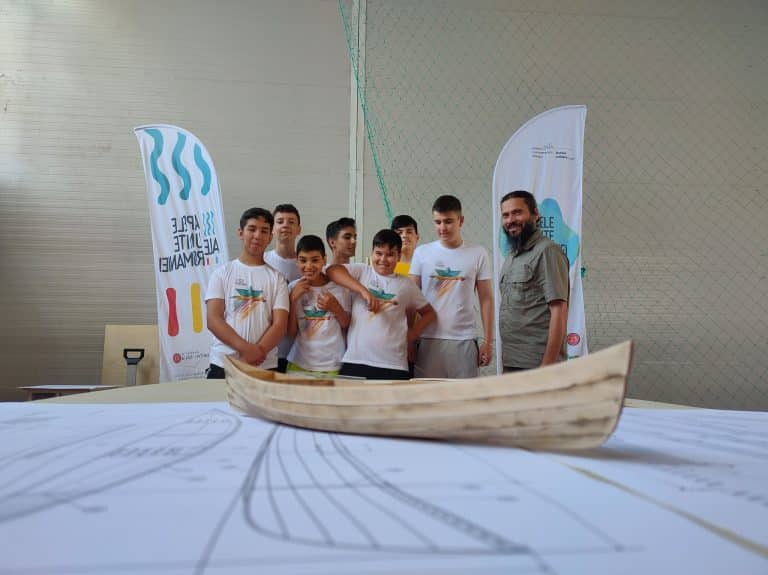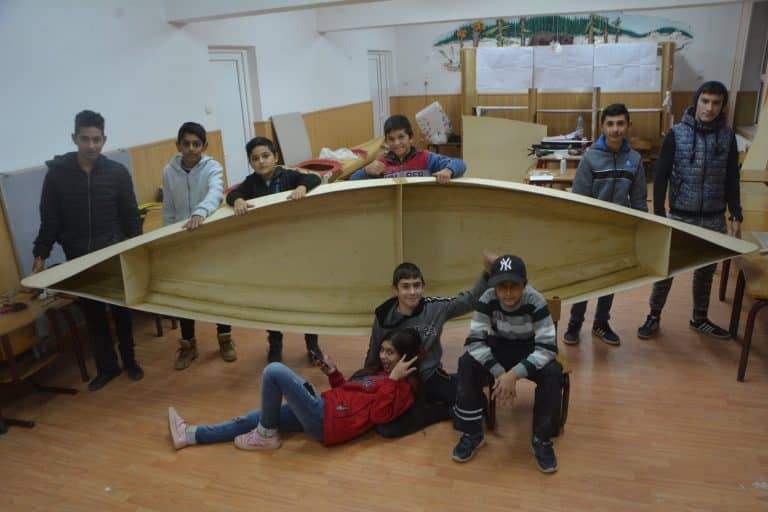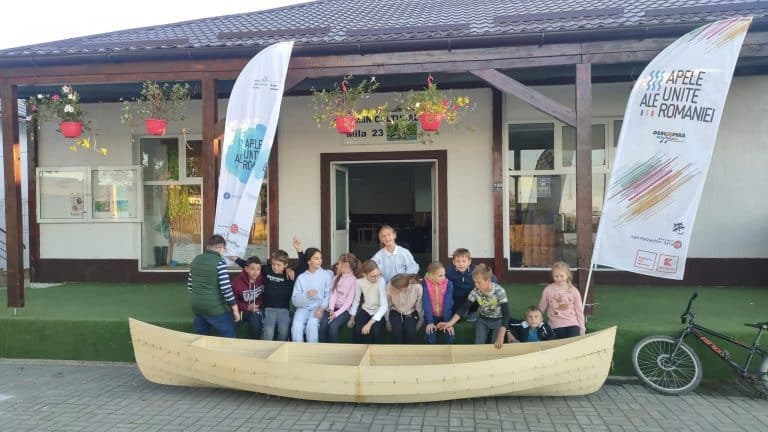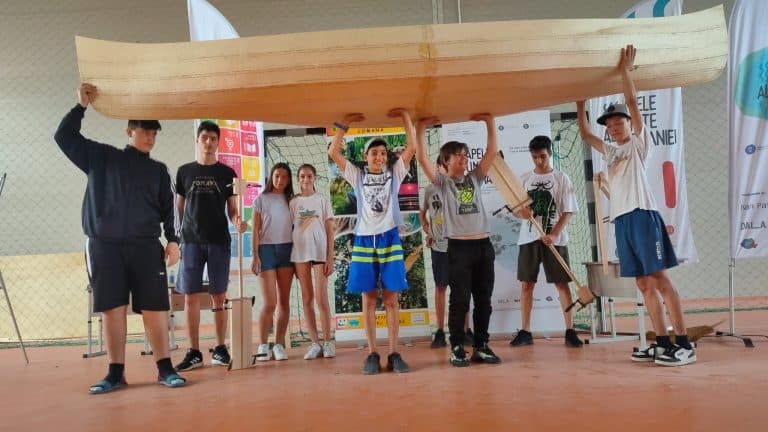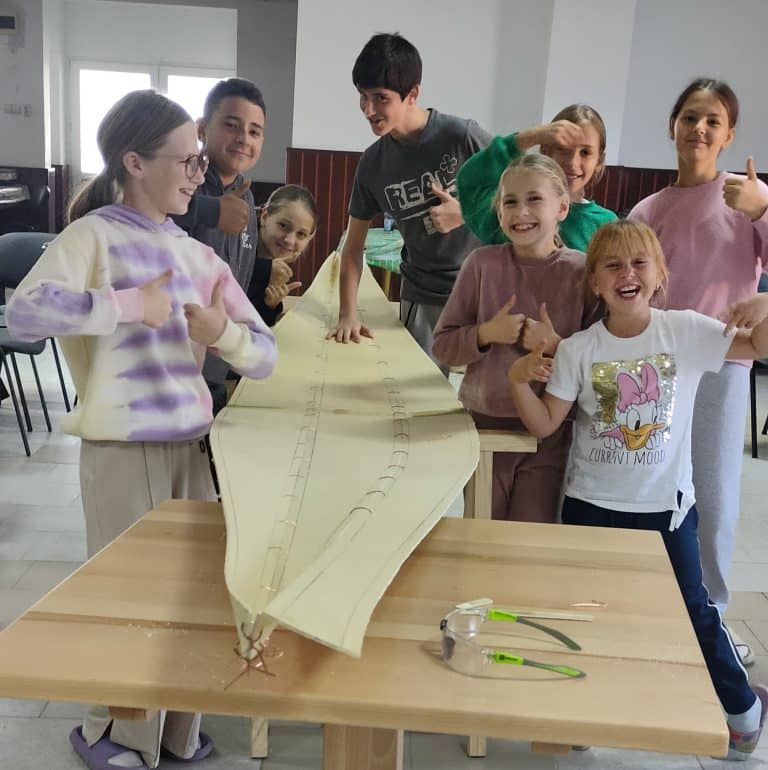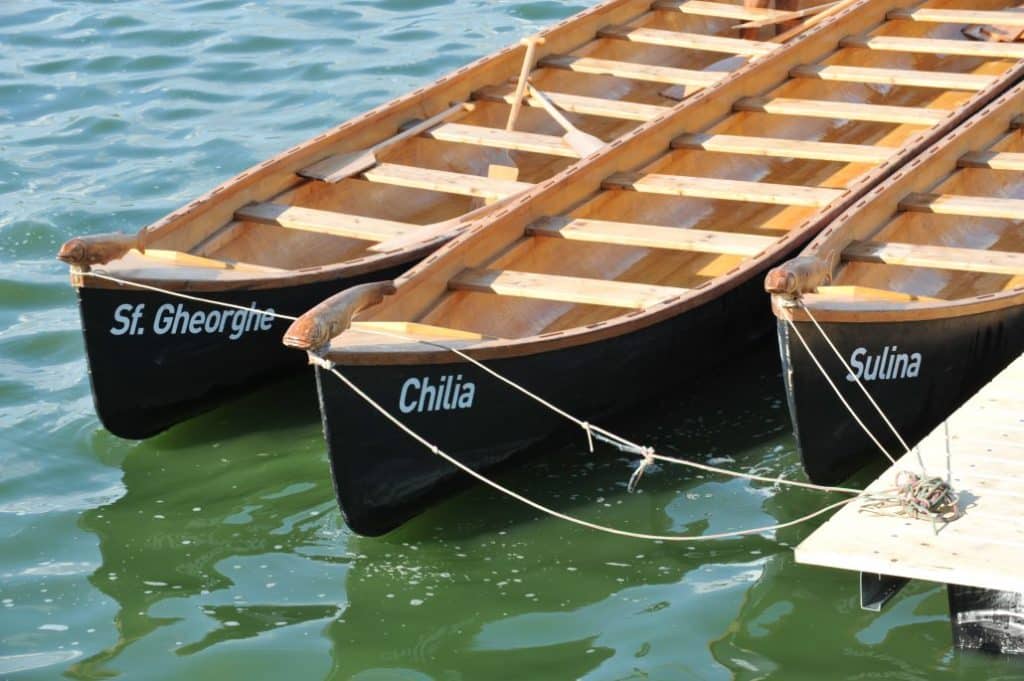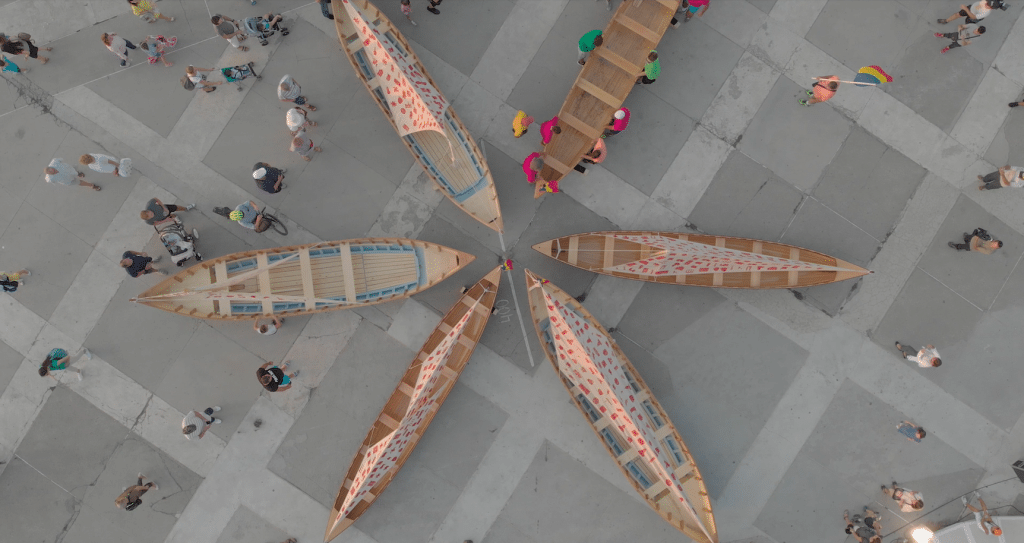Education for our Waters
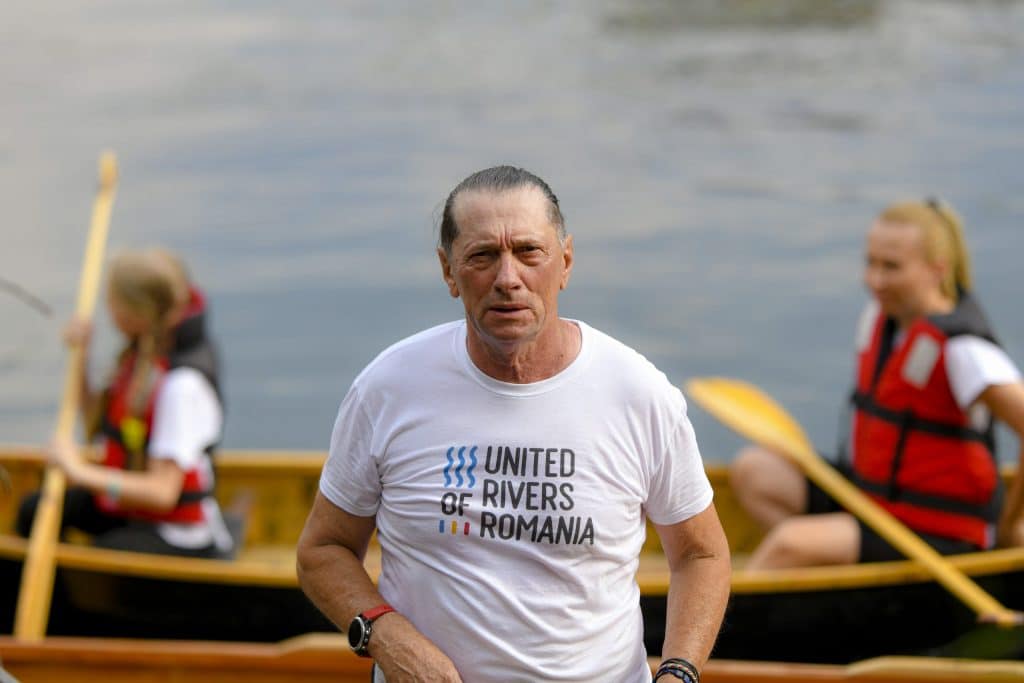
Inspired by Ivan Patzaichin, our leader who used his entire international reputation as a great Olympic and world sportsman to give back to his local community that supported him, always with an eye on the sustainable development of our country, we began from an element of intangible heritage found in the Danube Delta – the traditional fishing boat (lotca) – unprotected, with a significant potential.
We searched contemporary uses for the heritage and it turned out that it answers countless local and global problems today.
Through the example of the Deltaic lotca, we managed to highlight the organic relationship between man & nature – proven by the fact that people have always shaped their existence, created & generated their culture in accordance with their environment, and nature in turn has always adapted according to people’s actions – a premise for a paradigm shift in terms of how we relate to nature, the environment & to our Planet in the contemporary life practices.
The lotca, the traditional fishing boat specific to the Danube Delta, is an element of intangible identity for the multitude of ethical communities that populate the lands of the Romanian Delta. Lotca is not currently protected as part of the national or international heritage. We have started the process of recovering this important heritage element, which is currently on the verge of extinction, given that the few locals who knew the craft left us.
In order to be able to revitalize the craft, we defined a strategy that would give it contemporary meaning. We adapted the traditional boat construction model to the dynamic and easy-to-use shape of the competitive canoe, resulting in the “canotca” – a design product that honors the traditional boat in an adaptation that meets contemporary rowing needs.
Starting from the key element of the Deltaic heritage, during the last 13 years we defined a suite of activities and actions through which we can give the craft as many uses as possible today.
We built a flotilla of wooden boats that were put to use in the context of a new tourist service that we called pescatourism (slow tourism, in the Delta, spending an entire day with a fisherman for an authentic local experience), we developed a national activation campaign through water sports, visiting the localities formed around rivers or lakes and inviting representatives of the local communities to participate in a rowing competition. We managed to raise public awareness regarding the importance of the natural element of water for the well-being of a community at a national level.
In 2018, on the occasion of Centennial Romania, we honoured our heritage through The Romanian Centenary Regatta – the United Rivers of Romania, with a six-wooden boats fleet depicting the six historic provinces that accomplished the Great Union of 1918: Wallachia, Moldova, Transylvania, Bessarabia, Bucovina, and Dobrogea.
Danube Delta is where all the running waters, that carry stories from all corners of our country, unite and continue their journey together, as one. We considered the Centenary the perfect opportunity to take the story of the United Rivers of Romania across the borders and proudly present it to the entire world.
The Romanian Centenary Regatta participated in The Great River Marathon – Thames, London, with the kind support of the volunteer rowers from the Romanian community in Great Britain.
The educational wooden boat construction workshop joined, in 2019, the United Waters of Romania campaign of the Ivan Patzaichin - Mila 23 Association.
We planned to teach children the value of natural and cultural heritage, why they must be protected and how they can capitalize on them for the sustainable development of communities, for the present and the future, becoming responsible, resourceful citizens, caring towards their well-being, that of those around them and of the Planet & to make them aware of the urgency of meeting the SGDs and how each of us can contribute with the skills and tools at our disposal.
We decided to use the traditional “lotca” motif as a pretext to pursue the achievement of these objectives and, after extended research and several local interventions, we concluded that the key is to tackle these themes in the educational process.
We went to villages that do not have easy access to cultural activities and, starting from the lotca, an important identity element in the Delta, we generated a system through which we promote it as an exemplification of how to value the local heritage of a community, while also protecting the environment and nature.
